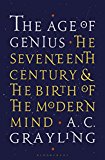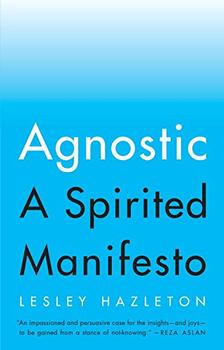Summary | Excerpt | Reviews | Beyond the book | Read-Alikes | Genres & Themes | Author Bio

The God Delusion makes a compelling case that belief in God is not just wrong but potentially deadly. It also offers exhilarating insight into the advantages of atheism to the individual and society, not the least of which is a clearer, truer appreciation of the universe's wonders than any faith could ever muster.
A preeminent scientist -- and the
world's most prominent atheist -- asserts the
irrationality of belief in God and the grievous harm
religion has inflicted on society, from the Crusades to
9/11.
With rigor and wit, Dawkins examines God in all his
forms, from the sex-obsessed tyrant of the Old Testament
to the more benign (but still illogical) Celestial
Watchmaker favored by some Enlightenment thinkers. He
eviscerates the major arguments for religion and
demonstrates the supreme improbability of a supreme
being. He shows how religion fuels war, foments bigotry,
and abuses children, buttressing his points with
historical and contemporary evidence. The God Delusion
makes a compelling case that belief in God is not just
wrong but potentially deadly. It also offers
exhilarating insight into the advantages of atheism to
the individual and society, not the least of which is a
clearer, truer appreciation of the universe's wonders
than any faith could ever muster.
Whatever your personal beliefs there is surely one thing that the majority of us can agree on, which is that whether we believe in one God, or many, or in none at all, we can agree that any deity worthy of our belief is not only robust enough to be able to cope with us questioning our beliefs as a process of gaining a greater understanding, but would actually welcome this process as preferable to blind acceptance. If you agree with this statement, then The God Delusion is a book you should give strong consideration to reading or, at a minimum, read the very extensive excerpt at BookBrowse...continued
Full Review
 (1106 words)
(1106 words)
(Reviewed by BookBrowse Review Team).
Richard Dawkins was born Clinton Richard Dawkins in March 1941 in Nairobi, Kenya. When
he was eight his family moved to England where he attended Oundle School, and then
Balliol College, Oxford, where he obtained a second class BA degree in zoology in
1962, followed by MA and DPhil degrees in 1966.
He describes his childhood as "a normal Anglican upbringing", but started to
doubt the existence of God when he was about nine years old. He later
reconverted persuaded by the argument that a designer had been necessary to
create the universe. However in his teens, when he better understood evolution,
he came to the conclusion that evolution could account for the complexity of
life and that a designer was not necessary.
...

If you liked The God Delusion, try these:

by A.C. Grayling
Published 2017
Out of a 'fractured and fractious time,' the author asserts persuasively, the medieval mind evolved into the modern. Another thought-provoking winner from Grayling." - Kirkus

by Lesley Hazleton
Published 2017
A widely admired writer on religion celebrates agnosticism as the most vibrant, engaging - and ultimately the most honest - stance toward the mysteries of existence.
Every good journalist has a novel in him - which is an excellent place for it.
Click Here to find out who said this, as well as discovering other famous literary quotes!